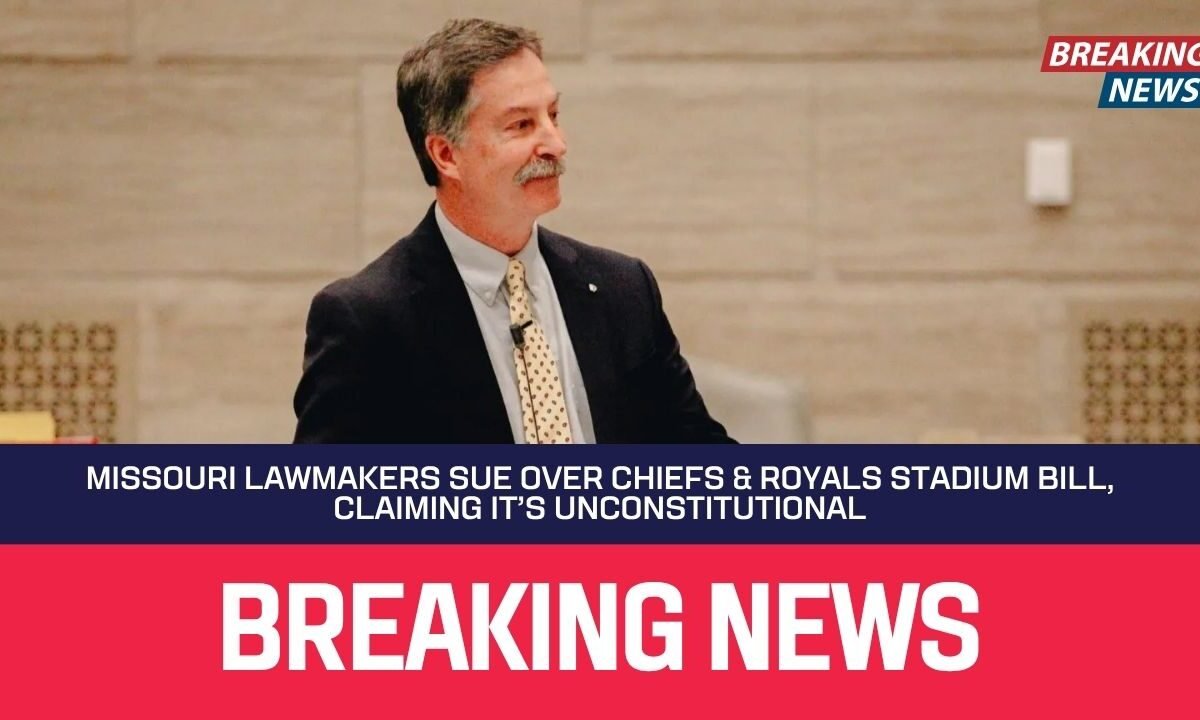In Missouri, a new legal battle is heating up over how state tax money is being used. Two state lawmakers are challenging a recent bill passed to support funding for the Kansas City Chiefs and Royals stadiums. They argue that the law violates the state Constitution by mixing unrelated subjects and giving public money to private sports teams. Here’s what this legal case is all about and why it matters to Missouri residents.
Why Are Missouri Lawmakers Suing Over the Stadium Bill?
Republican State Senator Mike Moon of Ash Grove and State Representative Bryant Wolfin of Ste. Genevieve filed the lawsuit in Cole County Circuit Court. They were joined by activist Ron Calzone, who has a history of challenging laws on constitutional grounds.
The lawmakers claim that the bill passed during a June special session is unconstitutional. The bill would allow up to $1.5 billion in state tax revenue to fund new or improved stadiums for the Kansas City Chiefs and Royals.
According to Moon, the state’s Constitution tells lawmakers how bills should be created and passed. He believes that this bill violates those rules by combining multiple unrelated subjects under one title.
Governor Kehoe’s Role and Political Pressure
Governor Mike Kehoe backed the bill, hoping to prevent either team from moving to Kansas, where competing tax incentives were being offered.
Moon criticized the governor’s decision, stating that while he respects Kehoe’s efforts to keep the teams in Missouri, he believes the governor ignored constitutional limits in the process. “This was a pretty big deal for the governor,” Moon said. “But he should know better as a former legislator.”
How the Stadium Bill Was Supposed to Work
The bill proposes to use tax revenue generated by the teams’ economic activity—including sales tax on tickets and merchandise, and income tax from players and staff—to pay off the bonds used for construction.
It also included several unrelated items, such as:
- Capping property tax increases in most Missouri counties.
- Extending tax credits for amateur sporting events.
- Providing tax relief to homeowners affected by natural disasters.
- A clause allowing courts to preserve legal portions if parts of the bill are struck down.
Legal Arguments: One Bill, Too Many Topics
The lawsuit argues that the bill violates Missouri’s “single subject rule”, which requires bills to focus on one clear topic. The lawsuit says the title of the bill is too vague, simply referencing “taxation”, which doesn’t clearly describe all that’s included.
Attorneys W. Bevis Schock and Erich Vieth, representing the plaintiffs, pointed out that the bill benefits both billionaire sports team owners and average homeowners—two very different groups. This, they say, is a key sign that the bill is not unified under one purpose.
They argue the bill’s flaws are so serious that none of it should stand.
What Happens Next?
The lawsuit seeks to strike down the entire bill. If the court agrees, Missouri may need to reconsider how it offers public financial support for sports teams. The case could also set a legal precedent for how future bills must be written and passed.
While the outcome is uncertain, this lawsuit shows how the balance between politics, sports, and law can quickly become complicated when public money and constitutional limits collide.
Conclusion
The legal challenge to Missouri’s stadium funding bill highlights a bigger issue—how public money should be spent and whether lawmakers are following the rules. As the court reviews this case, it will have to decide not just about sports stadiums, but about protecting the principles that guide lawmaking in the state. The decision could affect how future tax laws and public funding programs are created in Missouri and across the country.




